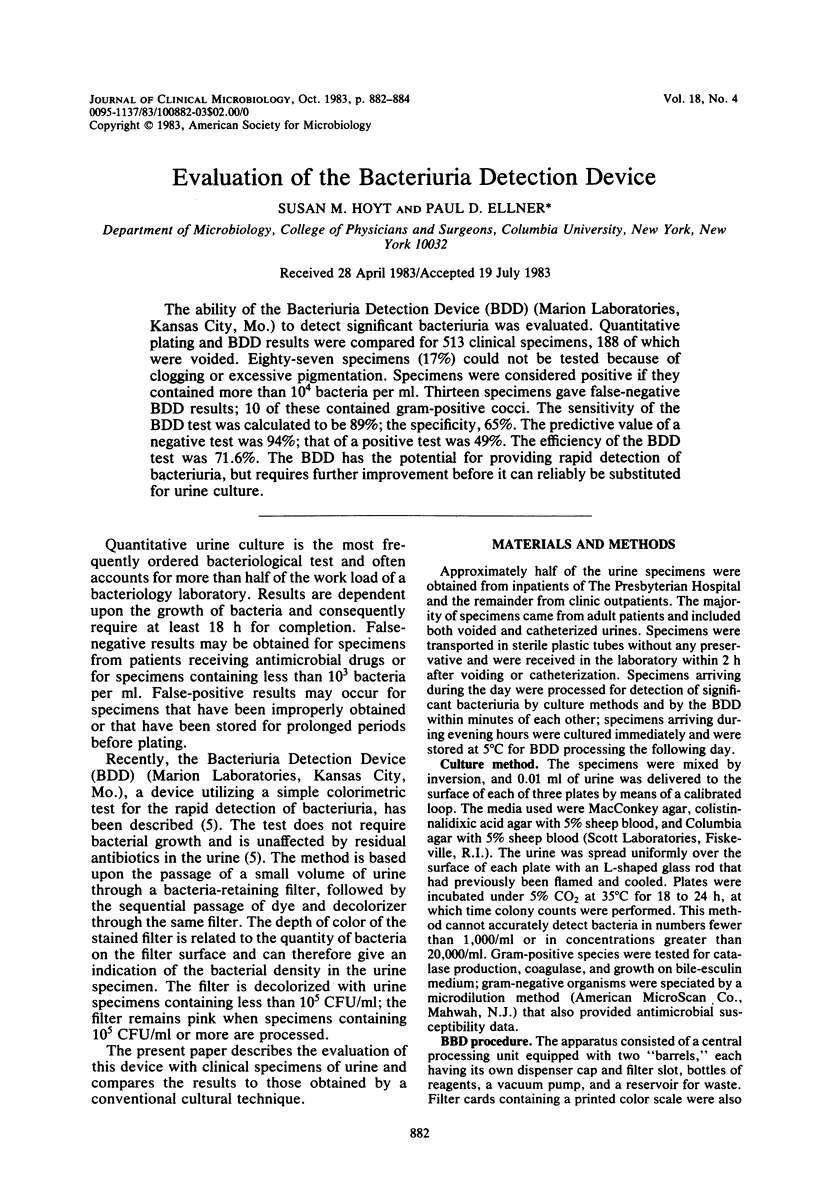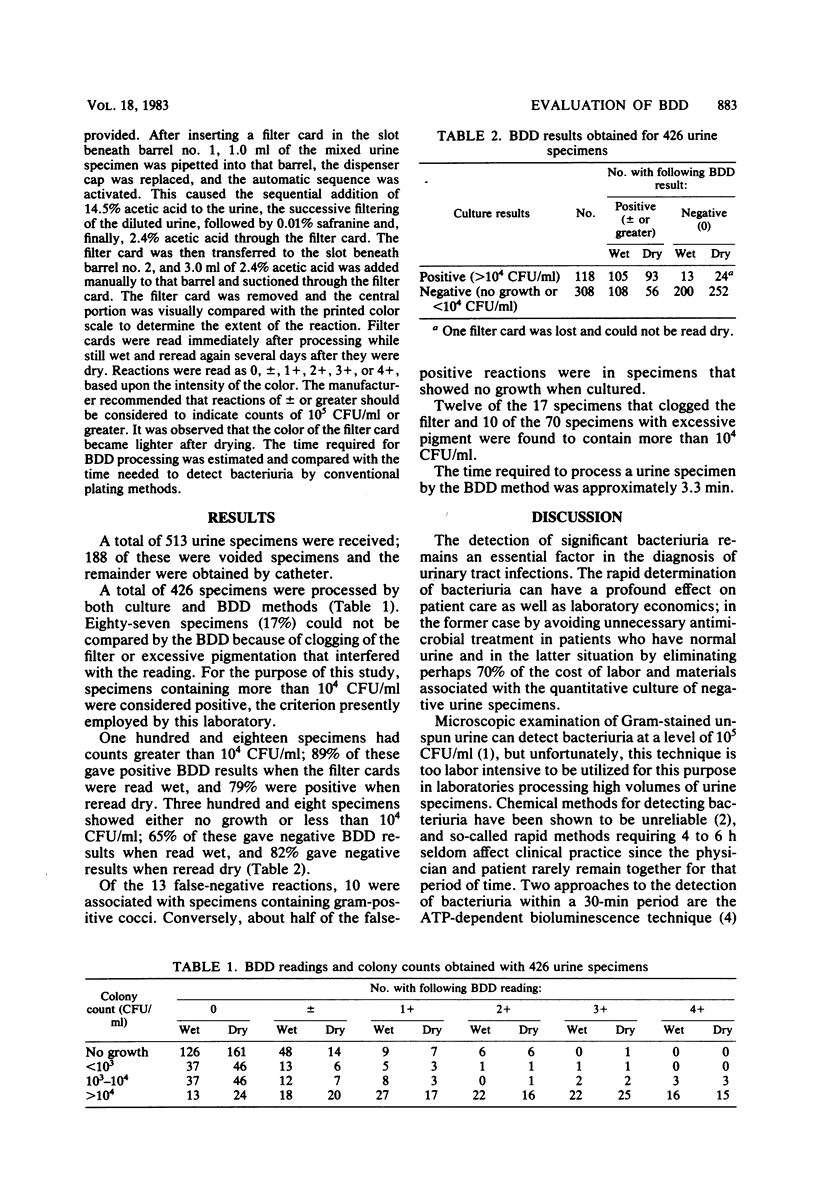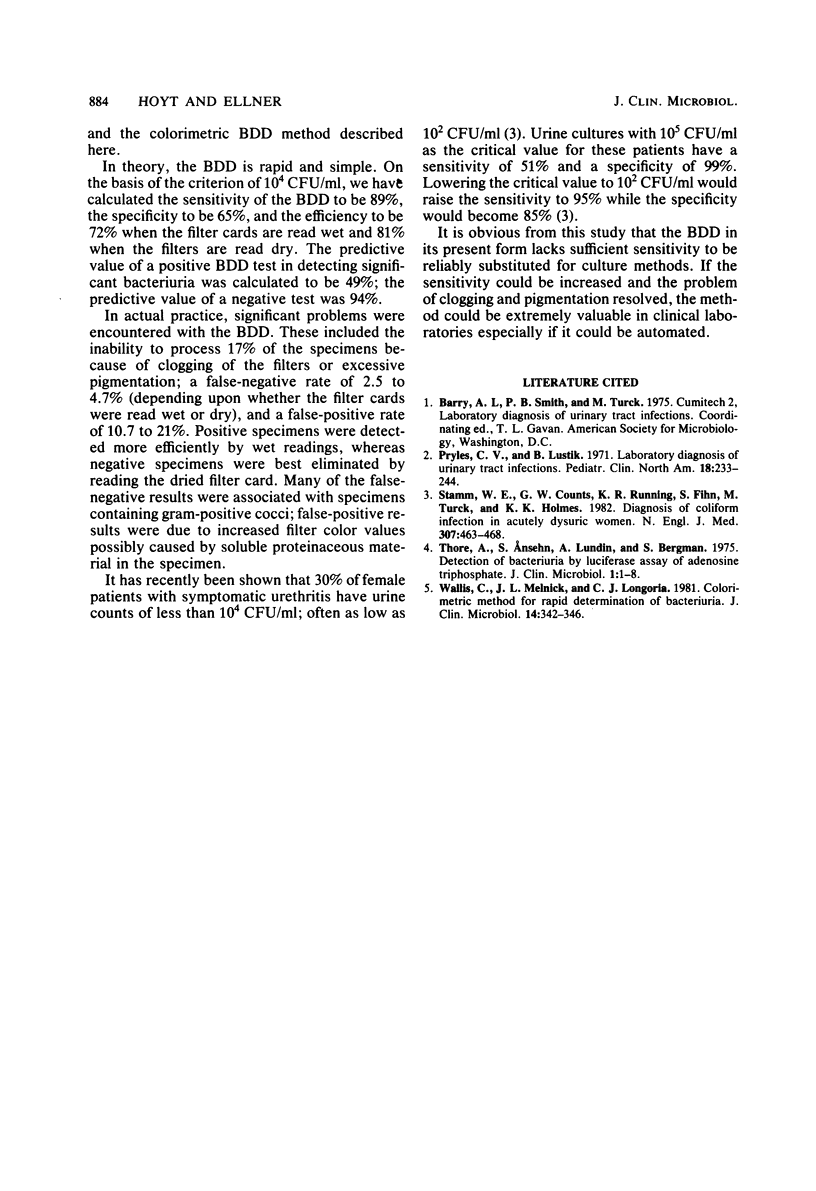Abstract
The ability of the Bacteriuria Detection Device (BDD) (Marion Laboratories, Kansas City, Mo.) to detect significant bacteriuria was evaluated. Quantitative plating and BDD results were compared for 513 clinical specimens, 188 of which were voided. Eighty-seven specimens (17%) could not be tested because of clogging or excessive pigmentation. Specimens were considered positive if they contained more than 10(4) bacteria per ml. Thirteen specimens gave false-negative BDD results; 10 of these contained gram-positive cocci. The sensitivity of the BDD test was calculated to be 89%; the specificity, 65%. The predictive value of a negative test was 94%; that of a positive test was 49%. The efficiency of the BDD test was 71.6%. The BDD has the potential for providing rapid detection of bacteriuria, but requires further improvement before it can reliably be substituted for urine culture.
Full text
PDF


Selected References
These references are in PubMed. This may not be the complete list of references from this article.
- Stamm W. E., Counts G. W., Running K. R., Fihn S., Turck M., Holmes K. K. Diagnosis of coliform infection in acutely dysuric women. N Engl J Med. 1982 Aug 19;307(8):463–468. doi: 10.1056/NEJM198208193070802. [DOI] [PubMed] [Google Scholar]
- Thore A., Anséhn S., Lundin A., Bergman S. Detection of bacteriuria by luciferase assay of adenosine triphosphate. J Clin Microbiol. 1975 Jan;1(1):1–8. doi: 10.1128/jcm.1.1.1-8.1975. [DOI] [PMC free article] [PubMed] [Google Scholar]
- Wallis C., Melnick J. L., Longoria C. J. Colorimetric method for rapid determination of bacteriuria. J Clin Microbiol. 1981 Sep;14(3):342–346. doi: 10.1128/jcm.14.3.342-346.1981. [DOI] [PMC free article] [PubMed] [Google Scholar]



